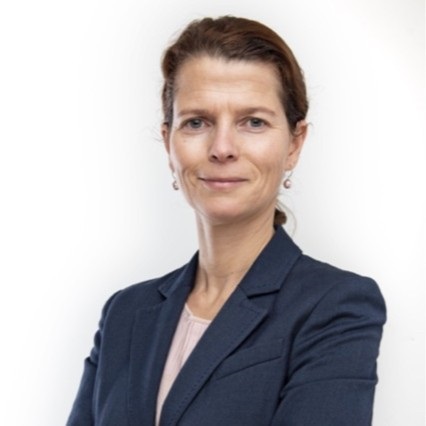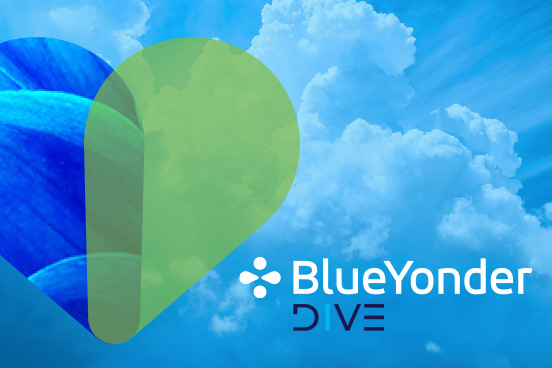Today’s DIVE In blog is an inspiring conversation with an accomplished female leader: Silke Gray Head of Global Customs, Export and Export Control at Hilti Group. With 30+ years’ experience in a male dominated industry she has encountered many different leaders and leadership styles, and one particular female leader who inspired Silke on her journey. Today Silke shares her thoughts on diversity and inclusion, some personal anecdotes and why it is important to stay authentic to yourself.

In your opinion what characteristics make a good leader?
This year is my 30th work anniversary and I had the privilege to experience a wide range of different leadership styles and leaders. Sadly, I only had one female leader and she was nothing short of fantastic! Today we would say that she was a trailblazer! She inspired me to push the boundaries and I hope I can do the same for my team members.
In my view, great leaders have one attribute in common and that is the most important to me: Trust. This means empathy and emotional stability, authenticity, joy in sharing their knowledge and wisdom and the ability to create a safe space for their staff members. A space where their team members can learn, fail, and grow. Other characteristics would be being self-confident, and knowing their worth without being arrogant. Good leaders are self-aware, know their shortcomings and never try to hide them, and most importantly, they never put anyone down in order to elevate themselves.
You say diversity and inclusion makes you a better leader. What does diversity and inclusion mean to you, both personally and professionally?
To start with the personal side, I am German, and I have always worked globally, and I have lived in three countries so far. I am married to a British man who gave up his career and took a sabbatical year to support me and our daughters during our integration into a new job and country. Our kids are bilingual, and they have been bullied for being different. As a mother, working full-time and being the sole bread winner for the family while dad was at home is the complete contrary to most families living in our little Swiss village. Fortunately, many of our friends are multicultural and live and work all over the world – we all travel a lot.
On the professional side, I can say that there is enough scientific evidence and studies showing that diverse and inclusive teams are happier; they have a higher level of job satisfaction and they are more creative in problem-solving. If you are happy and satisfied you work better. This will lead to greater results within the team. Diversity drives innovation, greater productivity, stronger financial performance, more satisfied customers! I would never want to work in a different environment. I am privileged to work for a company where it is possible to hire diverse and to experience those effects.
What do you think are the biggest obstacles to reach a diversified workplace?
As a leader, and as a company, you need to be willing to take the risk and to be aware of your own bias while hiring. In the beginning it can be difficult, and you need to ask yourself why you are always hiring the same type of person and be aware of that bias. When you then hire different types of people, you need to be willing to support all team members during the integration, the new hire as well as the existing team. You need to create an environment where everyone can feel safe and be able to be themselves at work, otherwise you cannot benefit from a diversified workforce and have creativity flow. “Lead by example,” is an old saying but it is still valid. People work for people, and if I myself as a leader am not inclusive, how can I expect my team members to be? From my experience I can say that I was never disappointed in that aspect, and I always feel incredibly privileged that I can choose and build my own diverse and inclusive teams and see them thrive and grow.
Being aware of your biases is one thing, overcoming these biases is another. How can you overcome your own biases?
It starts with self-awareness and being aware of the biases that you might have. Start looking at them one by one and ask yourself why you have those biases. When you are entering a hiring process, you need to remind yourself about those and ask a colleague for feedback. If you are yourself an extrovert you might more likely hire candidates with the same attributes, but maybe a more introverted person would be the best fit for that position. You need to start small; you need to start with hiring just one person. If you see that working out for your team, then you can start expanding that approach and take more risks next time.
Some women in the tech industry have said their gender has affected the way that they are perceived or treated. Have you ever been in a situation like that and how did you handle it?
I have lots of examples to share on this one and my favorite ones are from the early stages of my career. After my apprenticeship I started an internal sales job, and my previous manager was asked to open a sales office in Singapore, and I wanted to be part of that project and go abroad to support. However, I received feedback that was I was too young and didn’t have a university degree. This came as a surprise to me, but didn’t discourage me; quite the contrary, I finished my MBA while working at the same and I was able to go abroad for a different project in the end. In the end I proved that it is possible and I’m happy that I didn’t give up.
What advice would you like to share with other women out there, that might help them reach their goals and become boundary pushers themselves, choosing to challenge?
Be yourselves, don’t be afraid to ask for help, support each other, know your own worth and go for it. I always try to support my team and help them grow and advance in their roles. And if the culture you are working in doesn’t fit your values and support your growth journey, then it’s time to change the environment and find another one that does. Being yourself and being authentic is so incredibly important for your own happiness in both your personal and your professional life and you shouldn’t change for anyone’s sake.
Watch Blue Yonder’s recent LinkedIn live session with Silke Gray.

